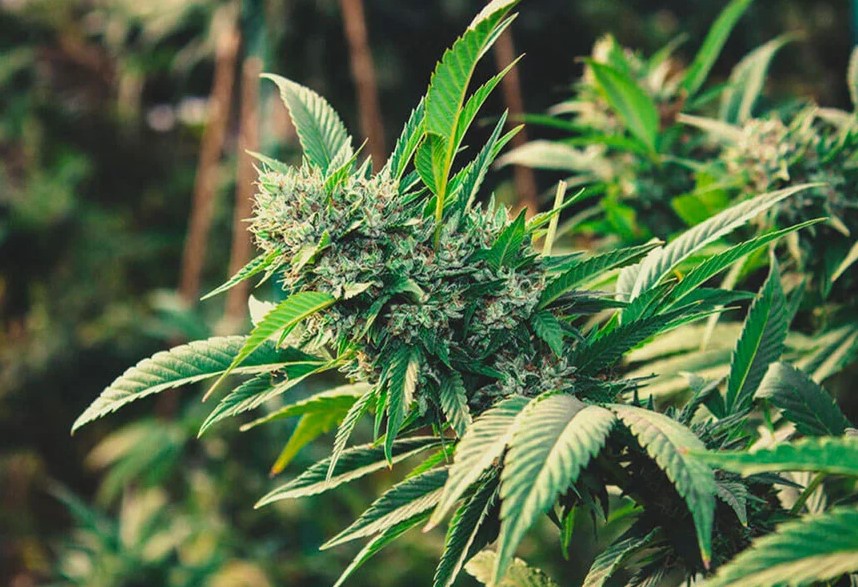Non classé
Organic Marijuana: What Makes it Special?
Today, organic cannabis is by far the most popular product accessible on the market. Whether you’re looking for high-quality flower for personal use, sale, or production, organic marijuana is a lucrative business in this sector. Would you like to acquire genuinely organic marijuana? If so, Pink Banger is the souche for you.
What Does Organic Marijuana Mean?
Cannabis that is produced naturally is known as organic marijuana. The plant is grown in a manner that depicts how it would develop naturally.
Cannabis that is grown naturally without the use of pesticides or chemicals is known as organic marijuana. There are no pesticides or fertilizers used to speed up growth or production. Natural resources, soil, and sunshine are required for organically produced cannabis to thrive.
Now that cannabis is more popular, many farmers are concentrating on higher production and bigger yields. Cannabis cultivation has gone through a scientific study with the hydroponic movement and chemical nutrients and artificial lighting are both utilized to imitate and speed up a plant’s growth cycle in order to produce larger,more numerous flowers and buds. This is opposed to organic marijuana farming.
Organic Marijuana Benefits
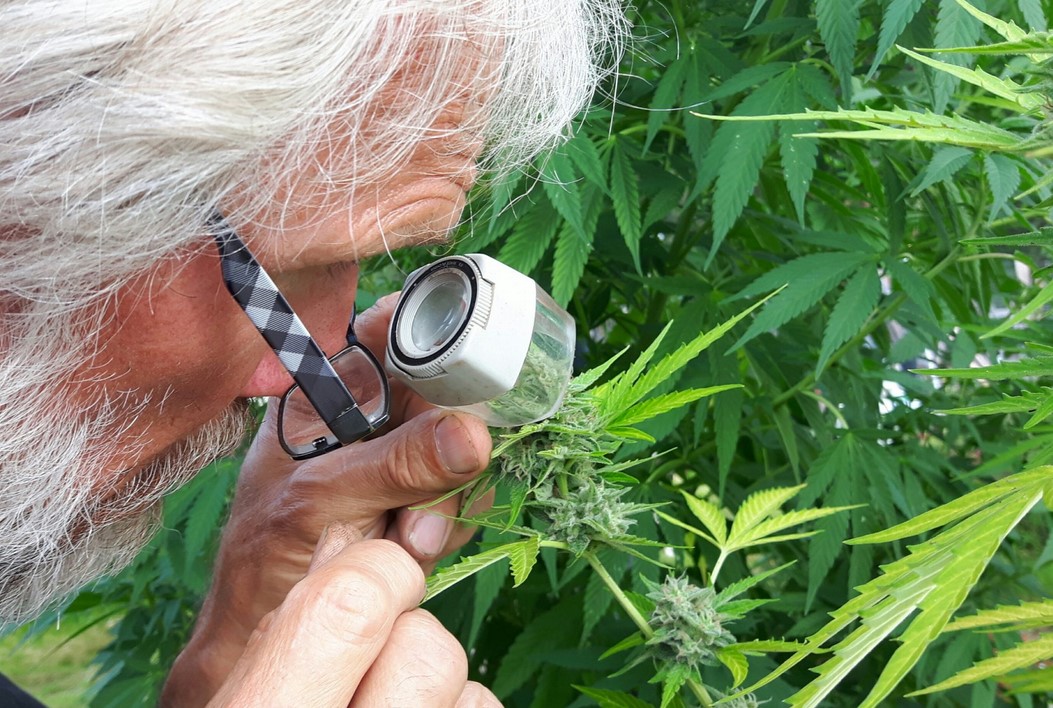
Richer Microbiome in Organic Marijuana Grow Ops
Organic cannabis soil mixes are chock-full of beneficial microbes. The plant’s ecosystem’s microbiome, which helps the plant develop properly, is present in this mix. A few cultivators germinate cannabis seeds in dirt.
Consider organic cannabis soil mixes as complex ecosystems. They include fungi, bacteria, and a variety of other microscopic organisms. Of course, nematode worms are included in this complexity. You can’t achieve this intricacy any other way.
Clays in the soil provide ideal growing conditions for cannabis plants. It helps to retain nitrogen and water, inhibits root diseases, and promotes plant growth. As a result, many organic marijuana farmers like to create their own “super-soil.”
Organic Cannabis is Safer for Consumption
Consumers are more aware of the cannabis sector’s unsavory cultivation techniques, providing for better decision-making. While growing organic marijuana at home isn’t difficult, large-scale producers face greater hazards. Some purists believe that allowing plants to grow naturally is better, regardless of whether organic cannabis growers use natural minerals and pesticides.
The most significant distinction between organic soil-grown cannabis and conventional cannabis is that the grower does not use chemical fertilizers or pesticides. While these help plants to bloom and mature, natural alternatives are accessible, and they pose a lower threat.
Cannabis requires a lot of organic nutrients, which are really cheap. Because they’re made out of composted organic waste, they may be free on occasions. This process entails putting organic food in a composter and then adding it to your soil.
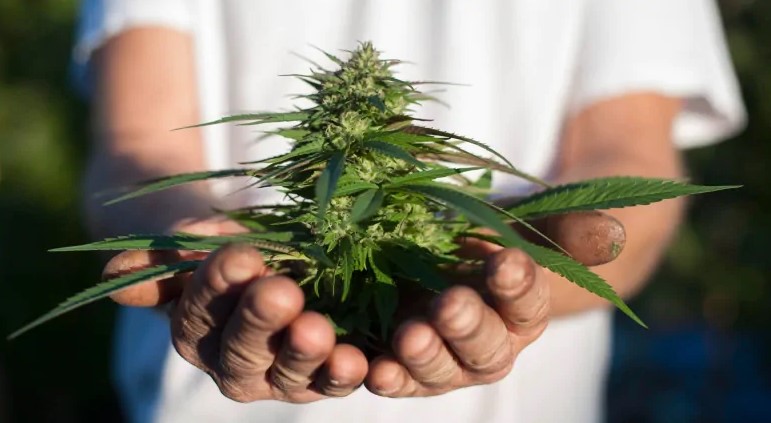
Organic Marijuana is More Potent
Organic cannabis plants thrive in a natural setting with enough light and the right nutrients. These plants have stringent and complex requirements to help them develop, and if you satisfy those needs, the results may be stunning.
Nutrient solutions made from cannabis are known as conventional nutrient systems. They give plants only what they require to live and develop. The required macronutrients (nitrogen, phosphorus, potassium, calcium, magnesium) and micronutrients (boron, copper, zinc) are generally included in these cannabis nutrient mixtures.
Trace elements such as potassium, arginine, iron, manganese, molybdenum, and zinc are introduced when using organic nutrients. While they aren’t essential, sodium (a growth nutrient), cobalt (a growth mineral that promotes plant development), chlorine (an IN fertilizer chemical used in swimming pools and hot tubs), and nickel (an important micronutrient) are all nutrients that may be present but aren’t often found in commercial fertilizers.
Better Yields in Organic Marijuana Grows
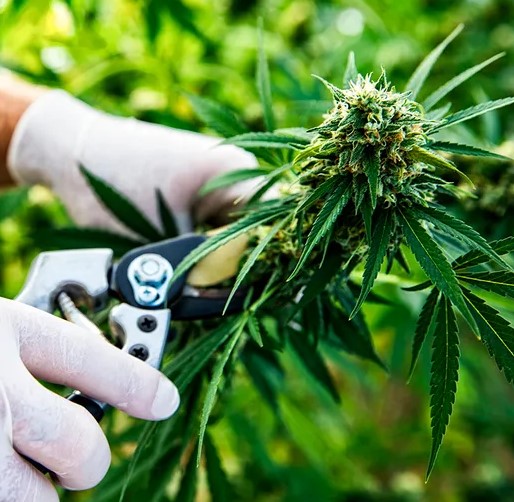
Some commercial growers are concerned that organic cannabis cultivation will reduce their earnings, but this is not the case. If all variables are properly managed, it’s possible to boost yields by 100 percent through conventional development.
However, if the micro-environment is incorrect, the yield can be significantly lower than non-organically grown marijuana. Commercial organic fertilizers for cannabis cultivation are now available, making it simpler. Now that growers have a better understanding of how to use these fertilizers, they’re learning more about them.
More Flavorful, Aromatic Buds for Organically Grown Cannabis
When you grow cannabis organically, the soil’s microenvironment is optimal. This ensures that your plants produce more of the cannabinoids that give flower its taste and fragrance. As a result of these cultivation techniques, greater quantities of terpenoids, flavonoids, and other cannabinoids will be generated.
Terpenes and terpenoids are odorous chemicals present in plants that give them their scent. Cannabis contains a lot of these compounds, each with its own distinct fragrance.
Cannabis and fruits and vegetables have many of the same chemicals, including flavonoids. These compounds, on the other hand, have greater antioxidant activity than those present in other meals.
Organically Grown Marijuana is Better for the Environment
The most environmentally responsible approach to cultivate cannabis is to utilize natural light from the outside. With this in mind, energy usage while growing inside is the most challenging aspect of doing so. However, pesticide runoff is another concern.
Cannabis produced organically has a lower carbon footprint. It’s especially advantageous for water resources in areas where cannabis may be grown legally, such as the Pacific Northwest.
Synthetic vs. Organic Fertilizers for Cannabis
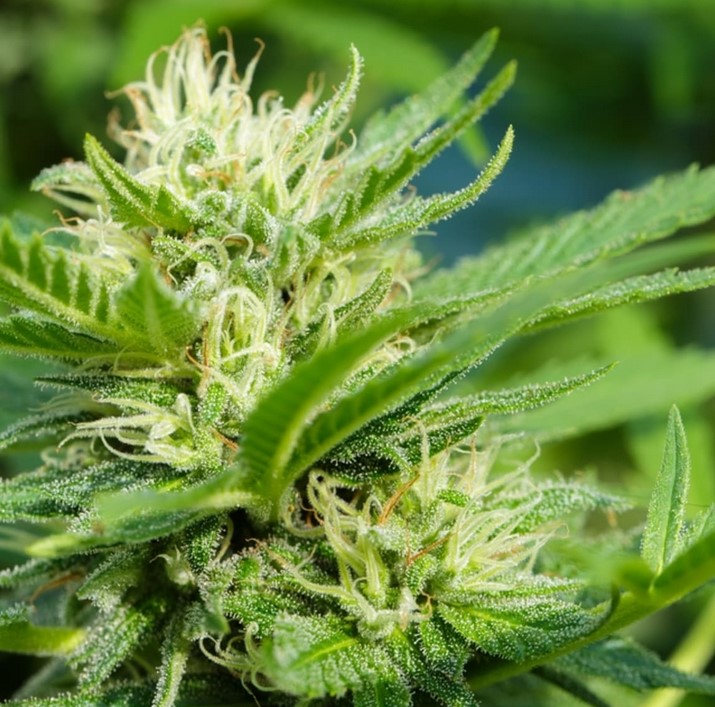
The inclination of today’s cultivators towards monoculture production is on the rise. To produce the most cannabis feasible, it is necessary to create sterile surroundings and alter factors in order to guarantee proper NPK ratios and a small pH range. Mineral solutions that have been extensively tested and verified to contain precise NPK ratios and a restricted pH range are often used as a result. Everything continues running smoothly in order for outstanding marijuana creation to be possible.
However, organic marijuana is cultivated using soil biology. Growers may naturally nourish their plants’ roots with ideal soil mixtures, just as nature does. While producing cannabis flower organically for the first time might be challenging, it’s a gratifying experience to end up with cannabis flower that isn’t laced with hazardous chemicals.
Not all fertilizers are bottled. Organic fertilizers, on the other hand, are frequently diluted. Furthermore, because of chemical and plant physiological limitations, combining all of your organic cannabis nutrients in a single bottle is challenging.
Organic Cannabis Nutrients to Consider
You may produce your own organic cannabis fertilizer. The following are the main organic cannabis macronutrients that assist in plant growth:
- Nitrogen (N)
- Phosphorus (P)
- Potassium (K)
Worm castings, crustaceous meal, bat guano, and chicken dung are all excellent sources of nitrogen. Even human urine is a viable option as long as it’s diluted with a ratio of 10:1 water to urine. When combined with the right nutrients and minerals in the proper proportions, this can minimize ammonia levels while preventing root burn.
Baked banana peels, moistened soil, and even unpeeled bananas are all viable options for organic phosphorus acquisition. To contribute some P to your soil mix, this combination must ferment a little. You may also use bone meal, rock dust, and chicken dung to give phosphorus.
Potassium is also readily available in the environment. Banana peel, bat guano, kelp, wood ash, compost, siliceous rocks, and fish meal are all potassium sources that can be used to provide cannabis plants with nutrition.
Calcium, magnesium, and phosphorus are also required. These nutrients are essential at the start of bloom, when your plants will profit from macronuts if you give them enough, as well as during bloom, when they will need more micronutrients.


